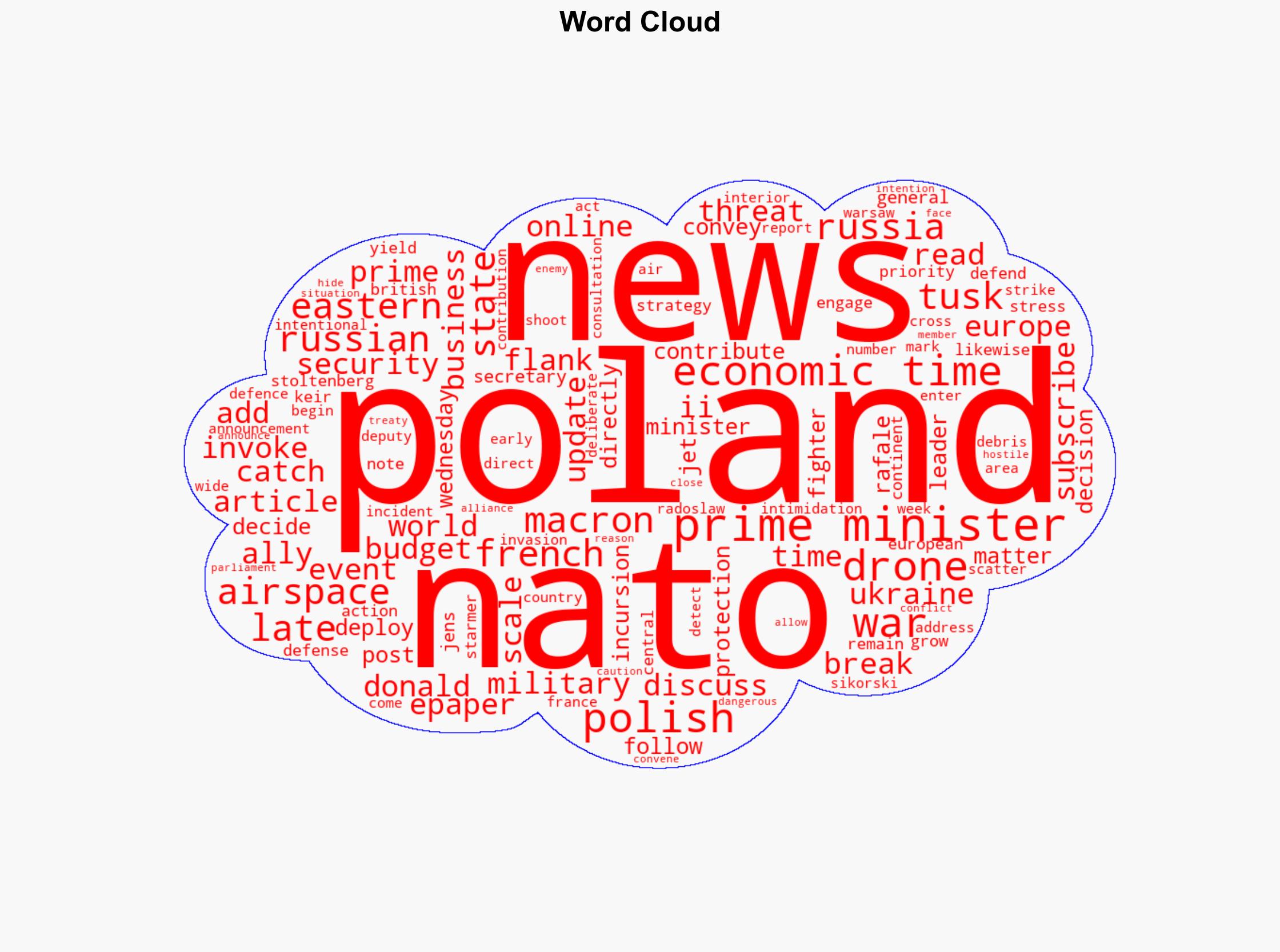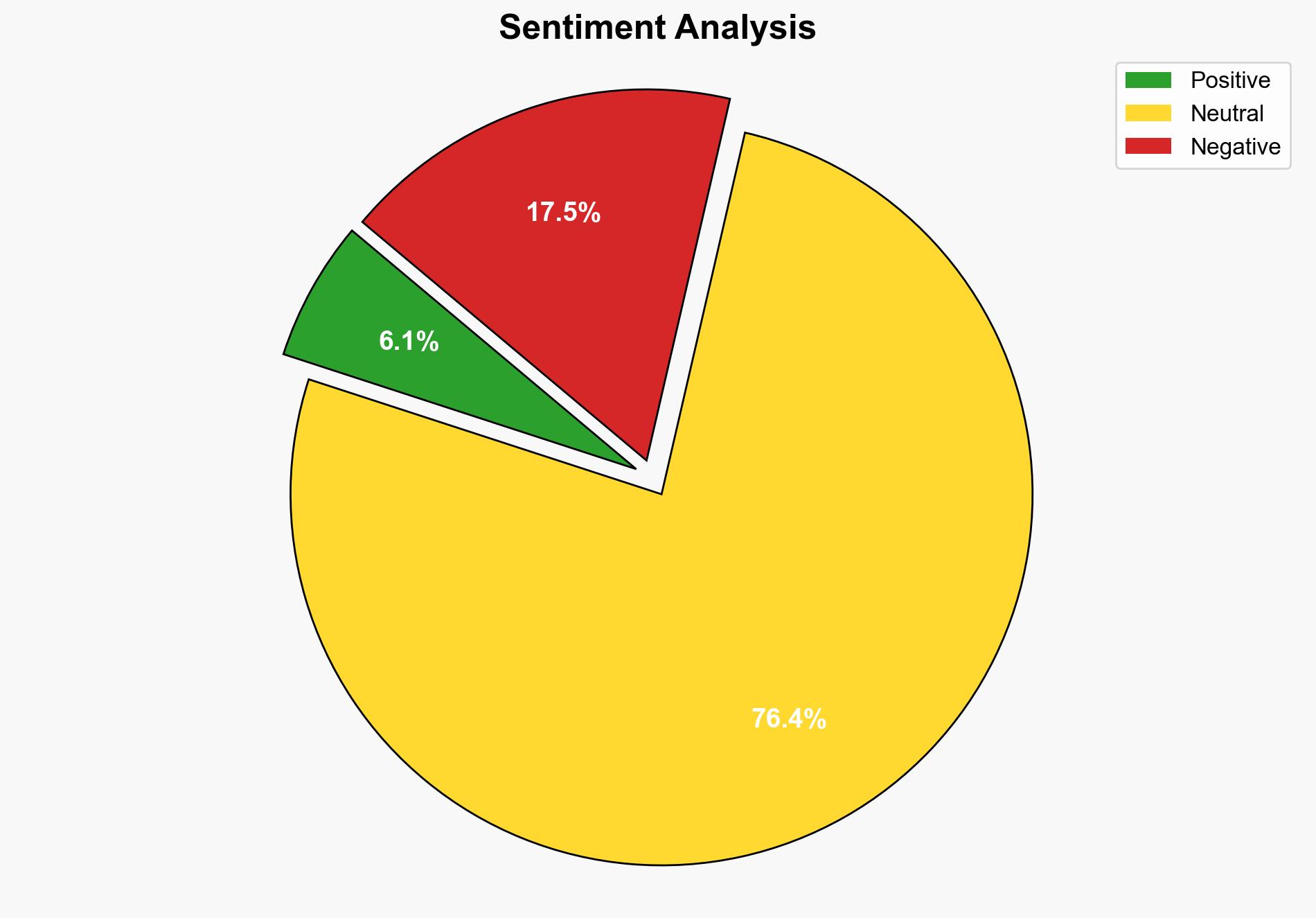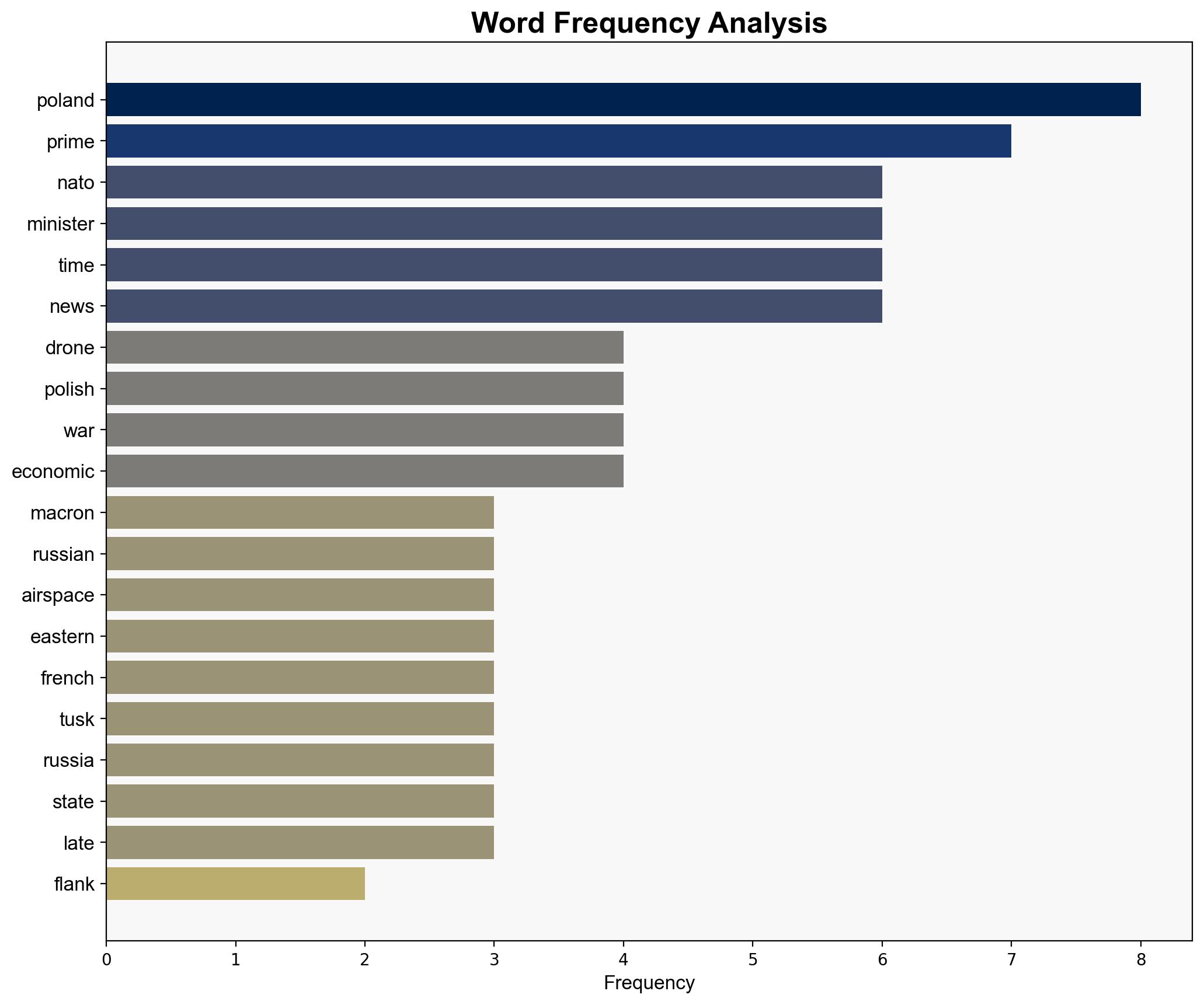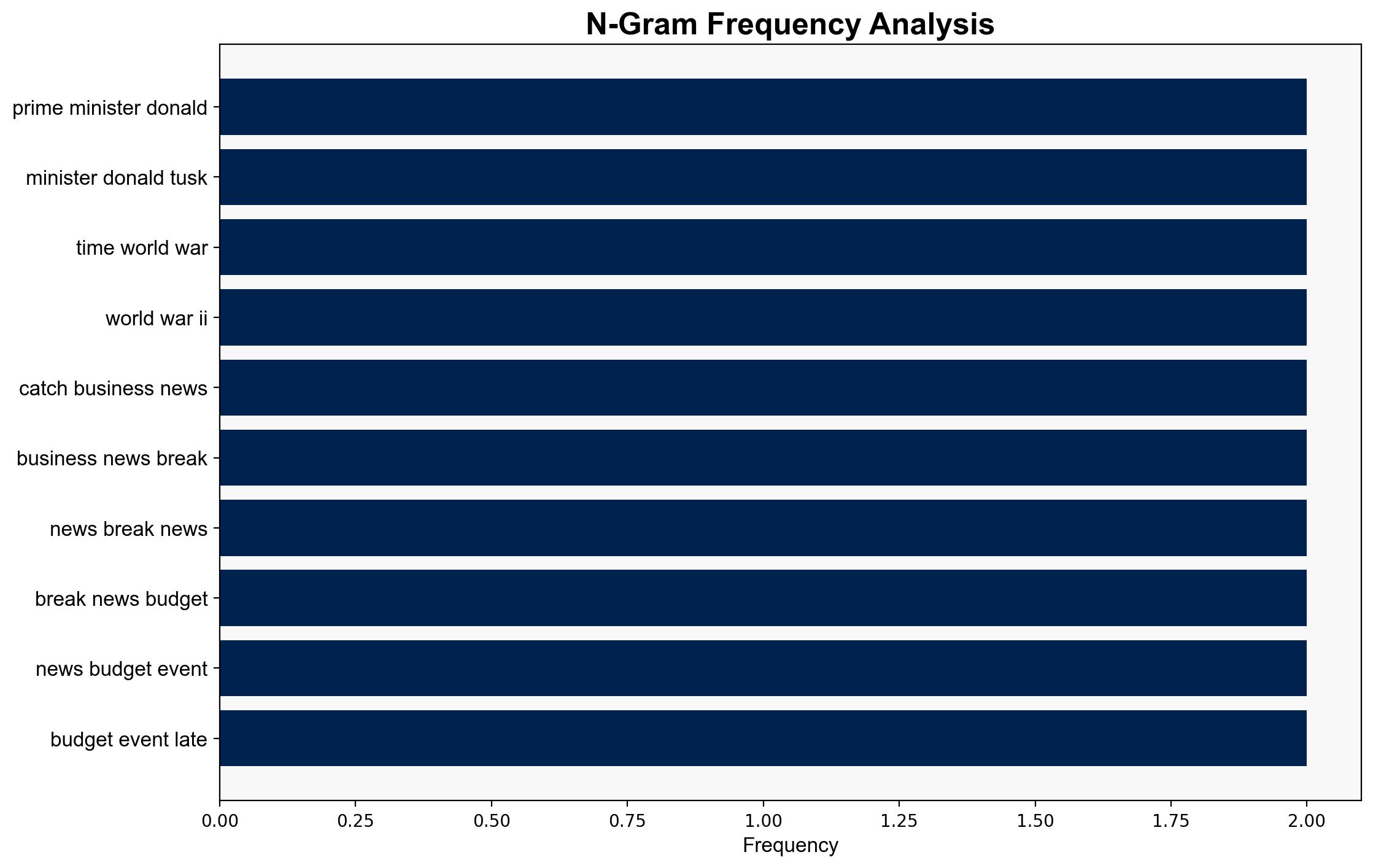France strengthens NATOs Eastern Front deploys Rafale jets to Poland after Russian drone incursions – The Times of India
Published on: 2025-09-12
Intelligence Report: France strengthens NATOs Eastern Front deploys Rafale jets to Poland after Russian drone incursions – The Times of India
1. BLUF (Bottom Line Up Front)
France’s deployment of Rafale jets to Poland is a strategic move to bolster NATO’s Eastern Front in response to Russian drone incursions. The most supported hypothesis is that this action is a deterrent against further Russian aggression, with a moderate confidence level. Recommended action includes reinforcing intelligence-sharing mechanisms within NATO and enhancing air defense systems in Eastern Europe.
2. Competing Hypotheses
1. **Deterrence Hypothesis**: France’s deployment is primarily aimed at deterring further Russian aggression and reassuring Eastern European NATO allies of collective defense commitments.
2. **Escalation Hypothesis**: The deployment is a step towards escalating military readiness in anticipation of potential broader conflict, possibly provoking further Russian military actions.
Using ACH 2.0, the Deterrence Hypothesis is better supported due to the direct communication between French and Polish leaders and the invocation of NATO Article 4, indicating a focus on collective defense rather than unilateral escalation.
3. Key Assumptions and Red Flags
– **Assumptions**: It is assumed that Russia’s drone incursions are deliberate provocations. Another assumption is that NATO’s response will be unified and effective.
– **Red Flags**: Lack of detailed information on the nature and frequency of drone incursions. Potential cognitive bias in interpreting Russian actions as purely aggressive without considering alternative explanations.
4. Implications and Strategic Risks
– **Patterns**: Increasing military posturing on both sides could lead to a security dilemma, where defensive measures are perceived as offensive threats.
– **Cascading Threats**: Potential for cyber-attacks or misinformation campaigns by Russia in response to NATO’s military actions.
– **Geopolitical Risks**: Strained relations between NATO and Russia could impact global diplomatic efforts and economic stability in the region.
5. Recommendations and Outlook
- Enhance NATO’s intelligence-sharing capabilities to better anticipate and respond to Russian actions.
- Strengthen air defense systems in Eastern Europe to mitigate risks from aerial incursions.
- Scenario-based projections:
- **Best Case**: Russia de-escalates, leading to reduced tensions and a diplomatic resolution.
- **Worst Case**: Escalation leads to broader military conflict involving multiple NATO members.
- **Most Likely**: Continued low-level provocations with periodic diplomatic engagements.
6. Key Individuals and Entities
– Emmanuel Macron
– Donald Tusk
– Jens Stoltenberg
– Keir Starmer
– Radoslaw Sikorski
7. Thematic Tags
national security threats, regional focus, NATO, military strategy, deterrence





